The campaign we should be watching
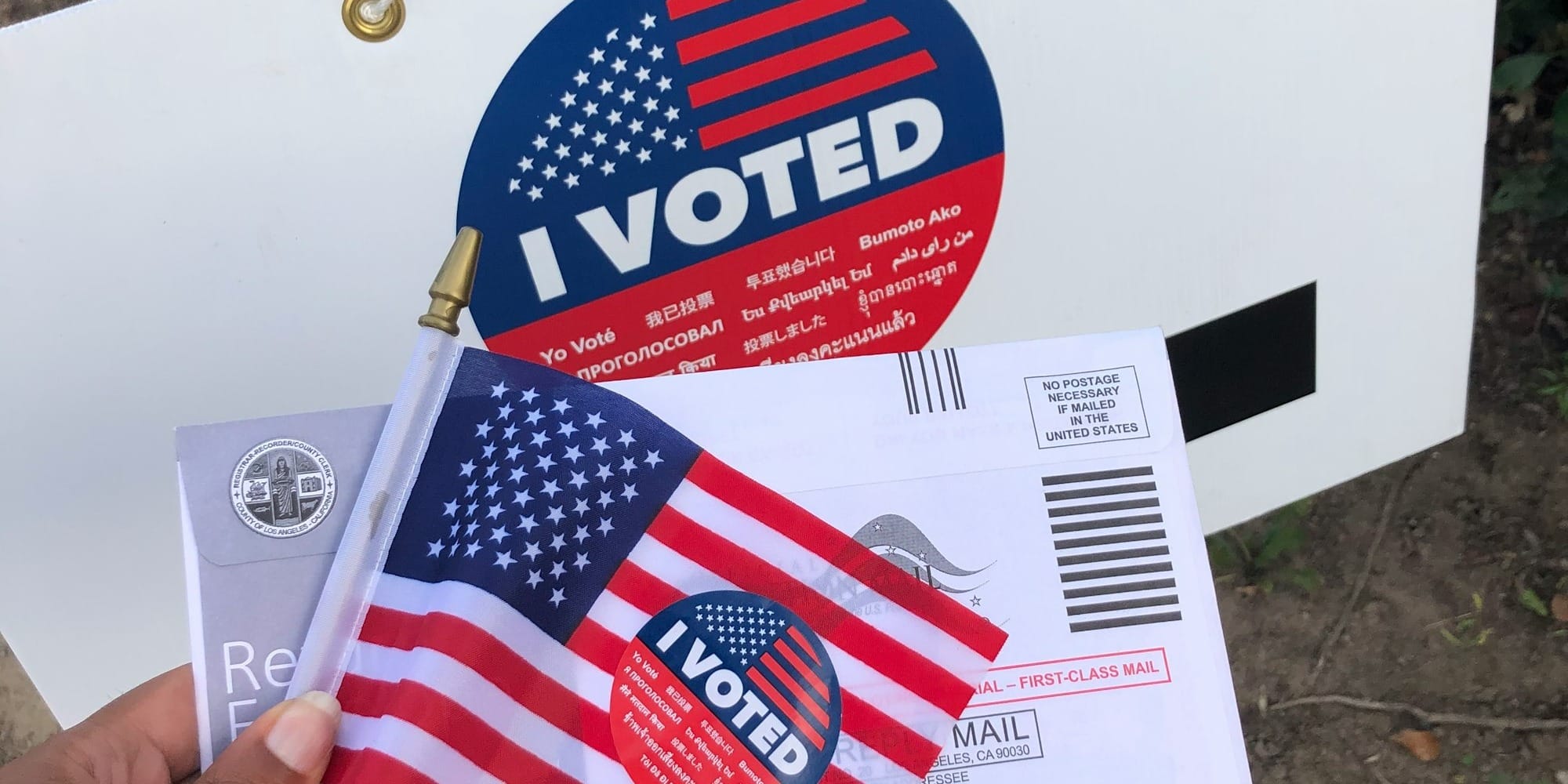
The political conventions are always followed by an intense period of analysis and speculation and this year is no exception. With coverage hyper-focused on one race, we can lose sight of other important news – like down-ballot contests, or continued partisan efforts to undermine electoral processes in states like Georgia.
Last week, the Georgia State Election Board passed a rule allowing local officials to conduct "reasonable inquiries" into ballot processing after the vote, without defining or setting limits as to what "reasonable" may entail. This means that in November, officials in any of Georgia's 159 counties can drag out certification based on a suspicion of inappropriate activity, which in turn could delay the results up and down the ballot.
Last May, all five members of the board voted no on an almost identical rule, raising questions about why it was reintroduced. Opponents of the rule worry that teeing up inquiries will further erode Georgia voters' trust in the electoral process, especially given the numerous questionable investigations in 2020.
The current version of the rule was proposed by Fulton County Registration and Elections Board member Michael Heekin and a group of contributors that includes fellow board member Julie Adams. Adams was appointed in February, refused to certify the March primary results and when thwarted, sued her own board, arguing that she and her colleagues should have discretion over whether to certify votes rather than a legal duty to do so. Bridget Thorne, a Fulton County commissioner who runs a private Telegram channel that spreads election conspiracies was apparently also involved.
With some 850 supporters and detractors in attendance, the state board passed the rule along party lines – its new Republican majority includes conservative media personality Janelle King, former Georgia legislator Rick Jeffares and retired obstetrician Dr. Janice Johnston. Johnston, according to this Rolling Stone piece, has been emailing with county board members about the rule for months. (Yes, even Rolling Stone is covering election meddling, in partnership with a newsletter that's aptly named American Doom.)
There's more – Cleta Mitchell's Election Integrity Network, for which Adams is regional chair, and Pennsylvania election activist Heather Honey threw in to support the rule change also, in what feels like a coordinated campaign that's setting the stage for claims of fraud. (We discuss Honey's story in Truth in Common workshops as part of our pro-democracy focus this year).
Not all Georgia Republicans support the provision. Governor Brian Kemp has raised the possibility of ousting members of the state board and Secretary of State Brad Raffensperger opposes the rule, saying it will permit officials to run out the clock on certification. Raffensperger was recently ousted from his nonvoting board oversight role, seemingly as payback for repeatedly refuting mis- and disinformation about the 2020 election. Other county officials have asked the board to stop changing the rules this close to November 5.
That's not to say mistakes weren't made. In Fulton County, over 250 voters didn't receive absentee ballots in the 2020 primary and there's a likelihood some 3000 ballots were double-scanned in the general. Vote counting and certification is a complex process and if we learned anything from 2020, it's that mistakes happen but the numbers are tiny, due to human error and certainly not throwing any results – facts that we should all be ready to repeat in the coming months.
True to form, the Georgia state board opened yet another investigation into the 2020 results on August 7 – almost four years after the votes were cast.
This story is getting attention because of its blatant partisanship and implications for the election overall. Unless the Georgia rule is overturned, we can be assured that "reasonable inquiries" will take place that delay results until long after November 5. These are the activities to watch, not the daily minutia associated with a single, high-profile national contest.
Truth in Common updates
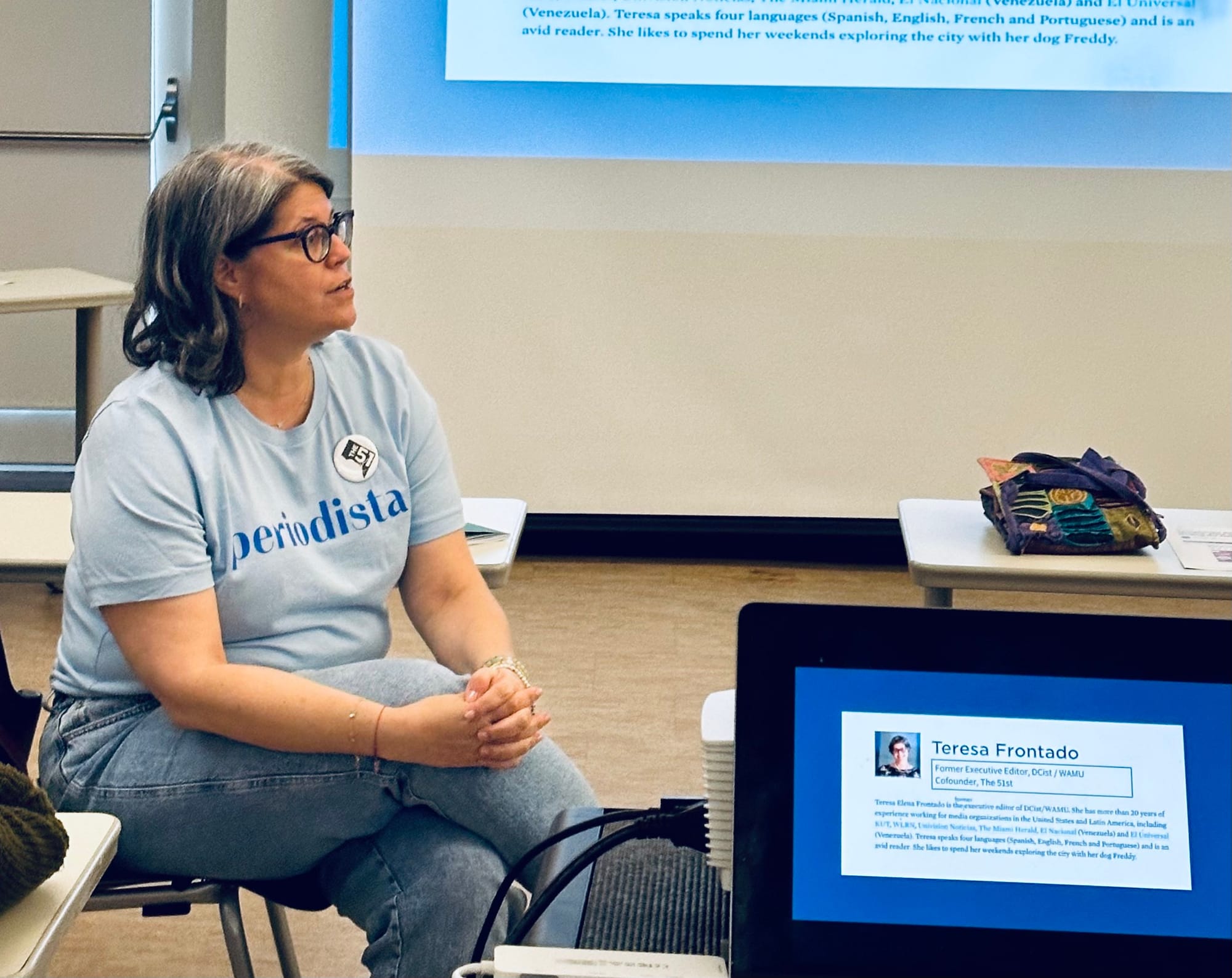
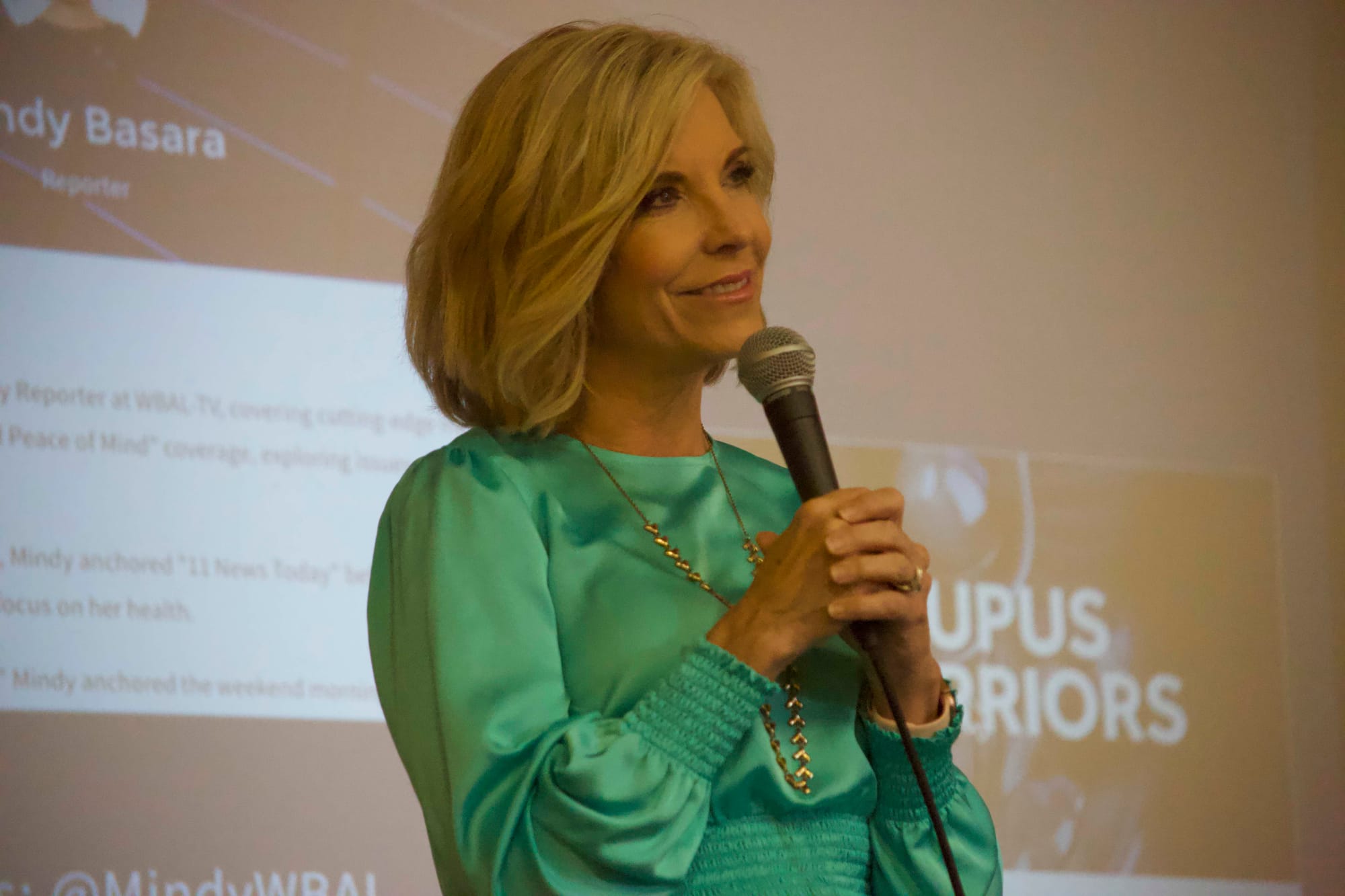
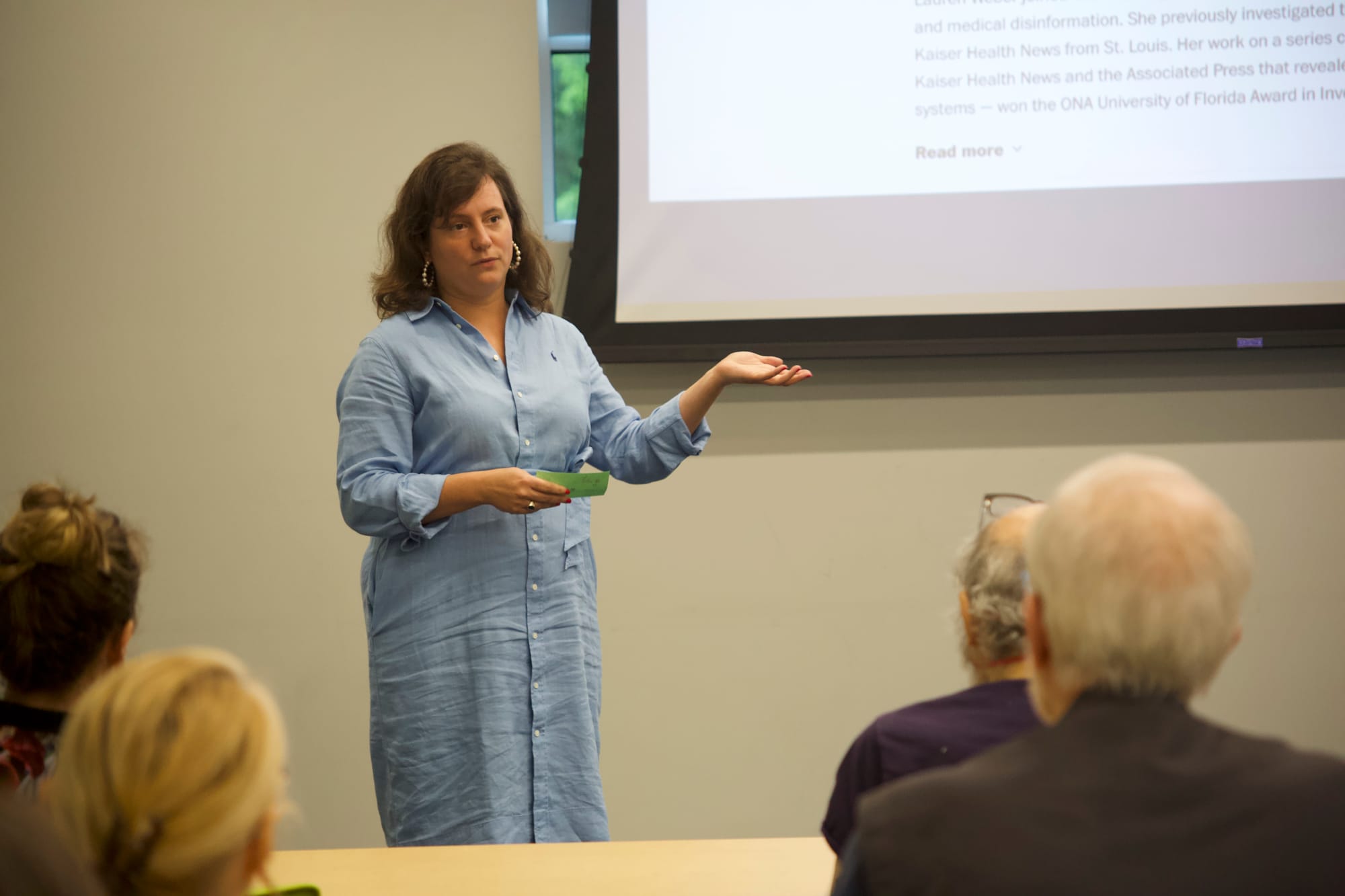
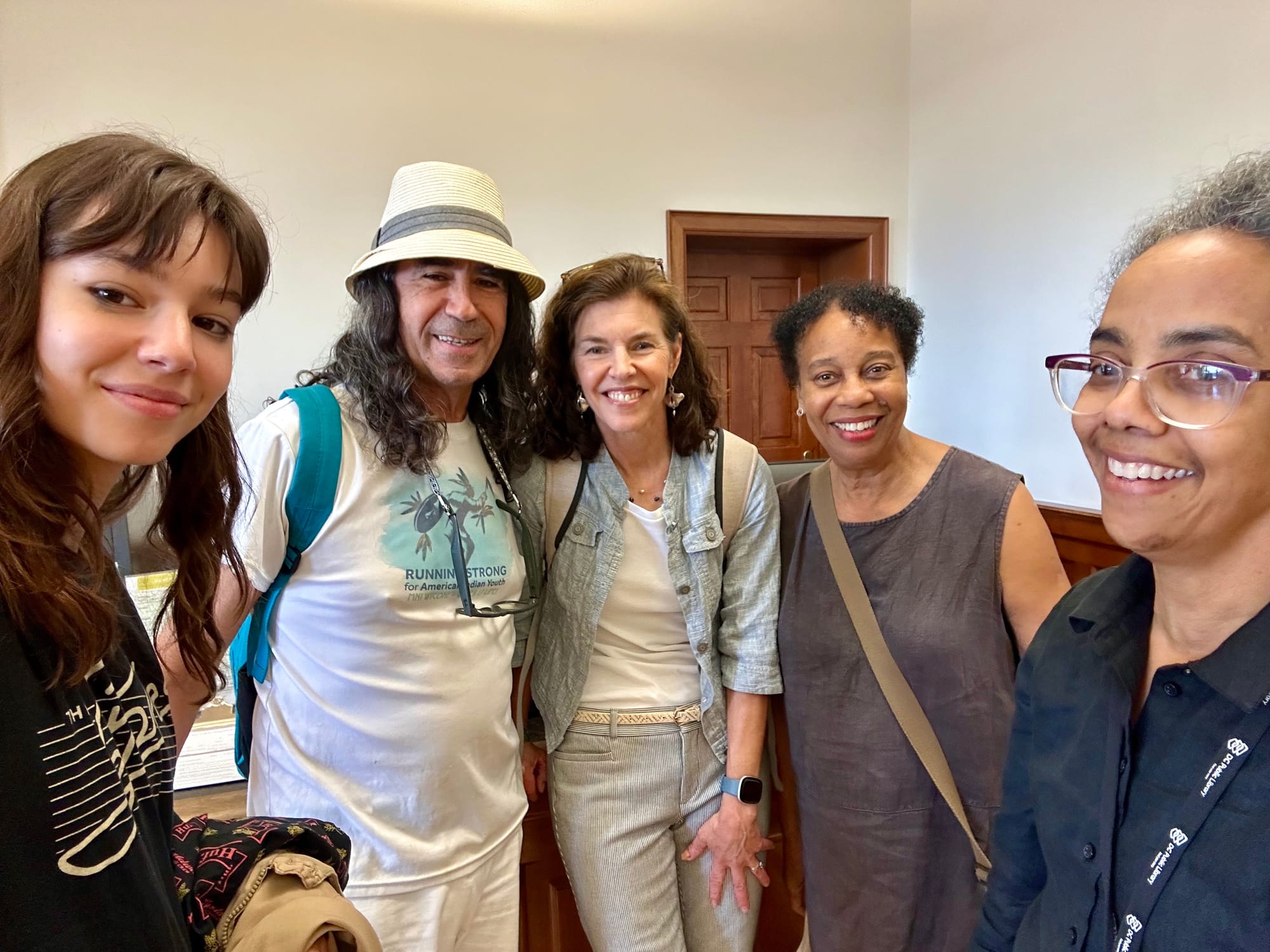
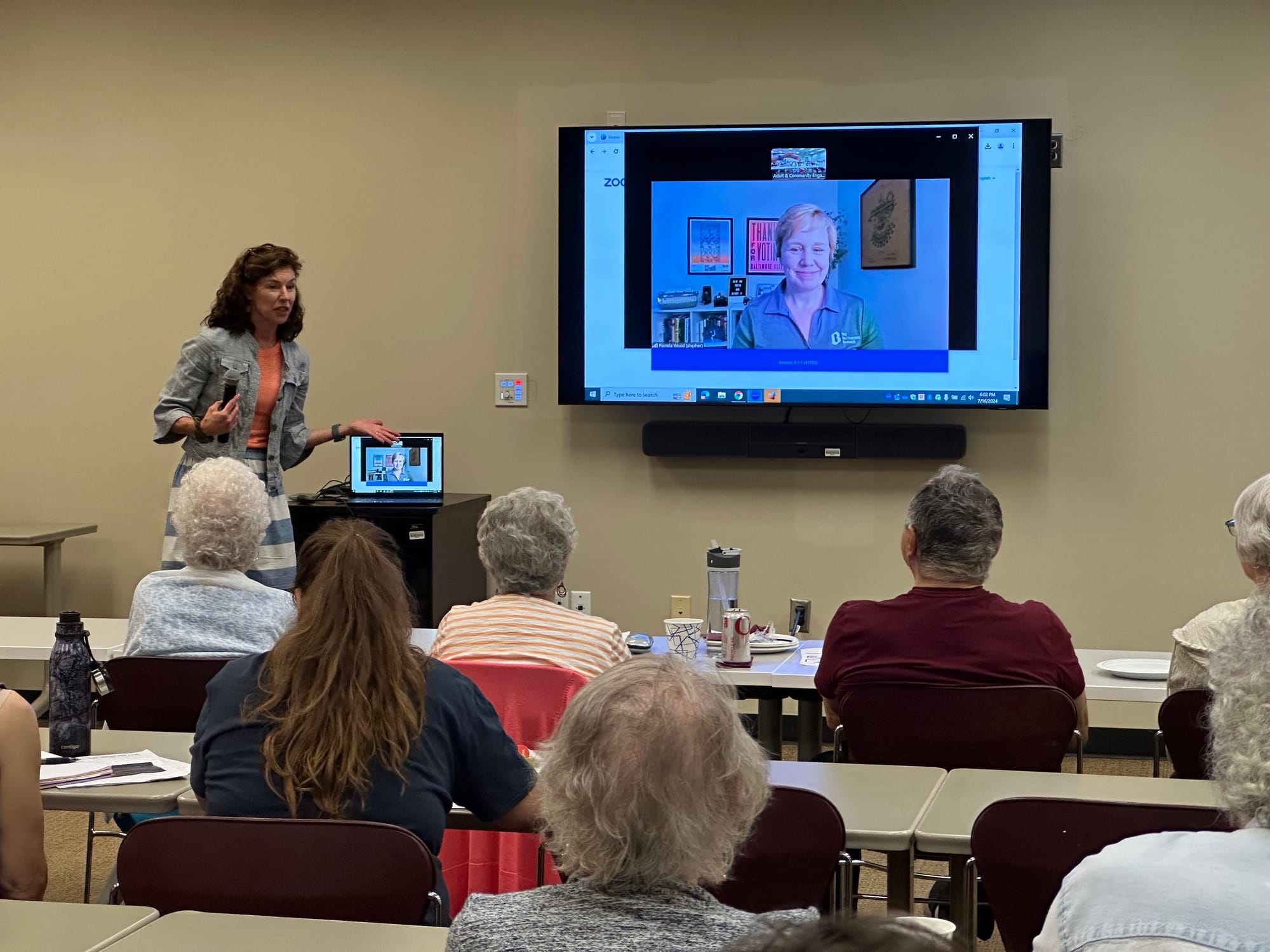
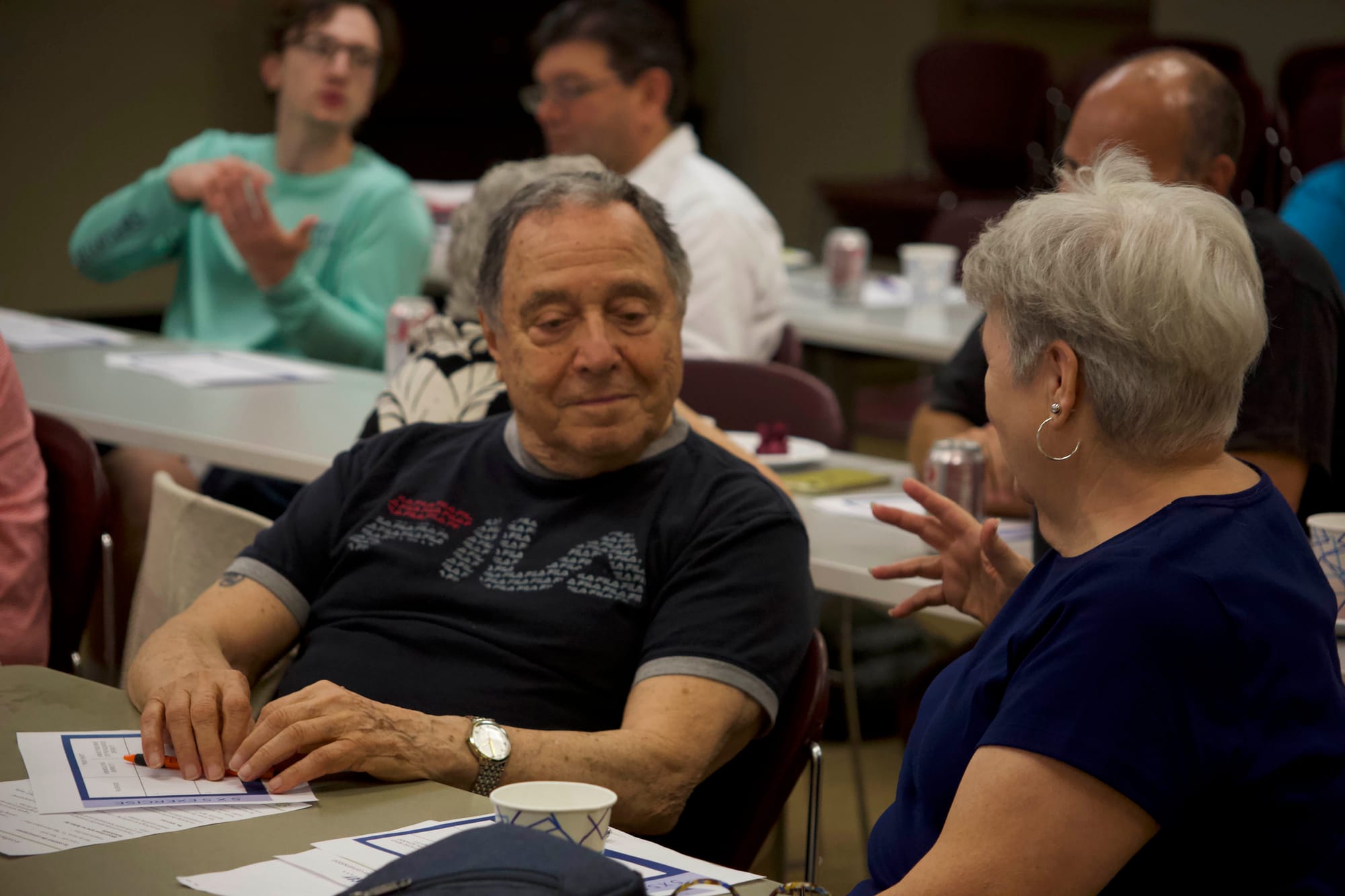
Credits: Nat Fernandez, Nina Fernandez, Deanna Troust
In the past six weeks we've completed four workshop series in DC and Baltimore County with folks who were inquisitive, gracious in their feedback and delighted to connect with others in their very different communities. Welcome to the Truth in Common community!
The top three and bottom center photos show our guest speakers:
- Teresa Frontado, co-founder of the new DC outlet The 51st and former executive editor for DCist/WAMU;
- Mindy Basara, noon anchor for Baltimore's NBC television affiliate, WBAL;
- Lauren Weber, accountability reporter covering health and science for the Washington Post; and
- Pamela Wood (on screen), local politics reporter for the Baltimore Banner.
All participants who submitted an evaluation said they would be changing their information consumption habits. The vast majority want to continue to connect and work as a group. These results validate our relational, pluralistic approach and are making this whole season worth it.
Upcoming events
DC-area folks: You're invited!
- Please join Truth in Common and DC Public Library at the inaugural (Mis)Information Lab Seminar, a day-long event at MLK Library for community members, business and agency leaders, practitioners, public health workers and anyone else who seeks to better understand and combat the spread of mis- and disinformation. Participants will have a chance to network and share promising practices at the event, which is free and open to the public. Join us!
✅ (Mis)Information Lab Seminar with DCPL, Saturday, September 21, 10-5 pm at MLK Library, 901 G St. NW, Washington, DC
READ MORE AND REGISTER HERE - Our next workshop in the DC area starts in late September at Wheaton Library in Montgomery County, MD. Join us!
✅ Disinformation: How to recognize and disrupt it, Mondays September 23, 30 and October 7, 6:00-7:15 pm at Wheaton Library, 11701 Georgia Avenue, Silver Spring, MD.
READ MORE AND REGISTER HERE - How about an 8-week, virtual course? We're teaching one called "Disinformation: How to recognize and disrupt it" at OLLI at American University. It starts on Thursday, September 26, 1:45-3:15 pm and runs for the next eight weeks, ending post-election on November 14. The course requires an OLLI membership to join – $330 for the fall semester gives you access to two courses out of OLLI's extensive catalogue. OLLI is geared toward retirees, but anyone is welcome to join.
✅ Disinformation: How to recognize and disrupt it (online)
READ MORE AND REGISTER HERE
Please consider making a donation to support our work this year!
At least the military is on top of things
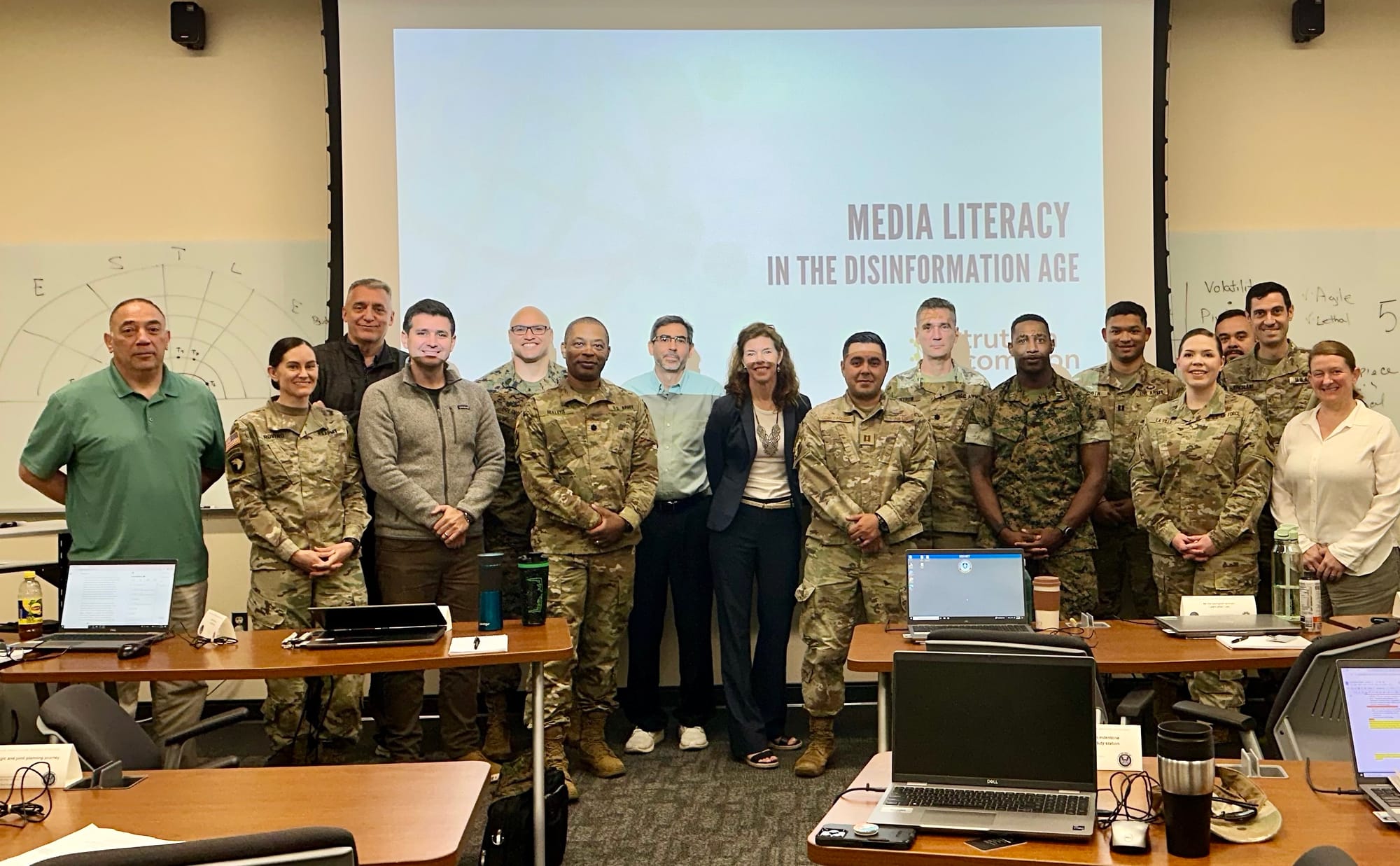
Did you know that military officers are trained to address disinformation and influence operations? I saw this first-hand in May when I spoke at the Defense Information School in Fort Meade, MD, where military public affairs officers receive their training before deploying around the world. It was my first time on base and kind of exciting. Instructor Steve Von Jett, and I compared how we teach about mis- and disinformation in military and civilian classrooms and there were more synergies than I expected. Steve was a public affairs officer in the Army himself and is teaching in his retirement; I feel certain we'll work together again.
Here's where I was told to park. No idea what it means, but it felt important!
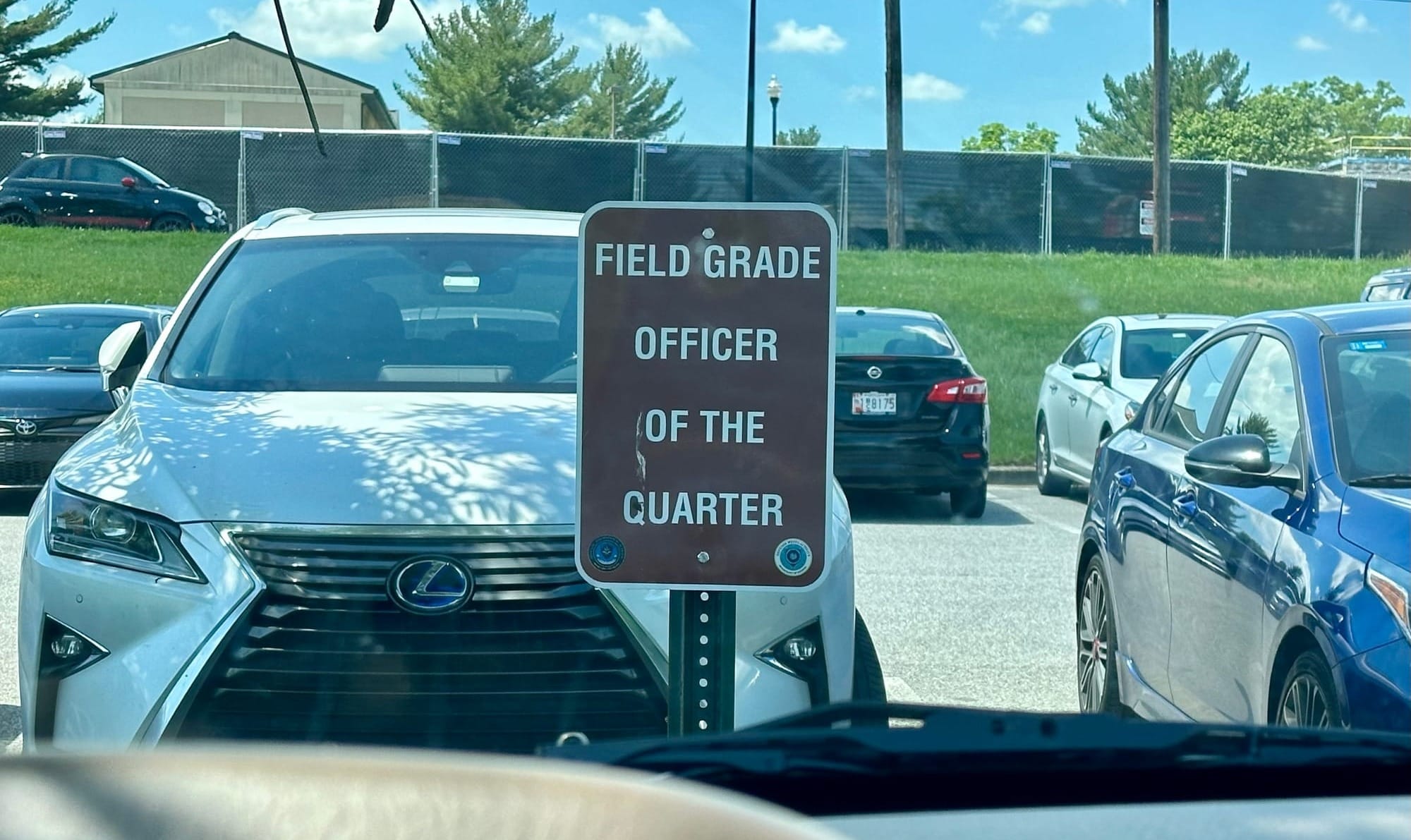
Other state-based news
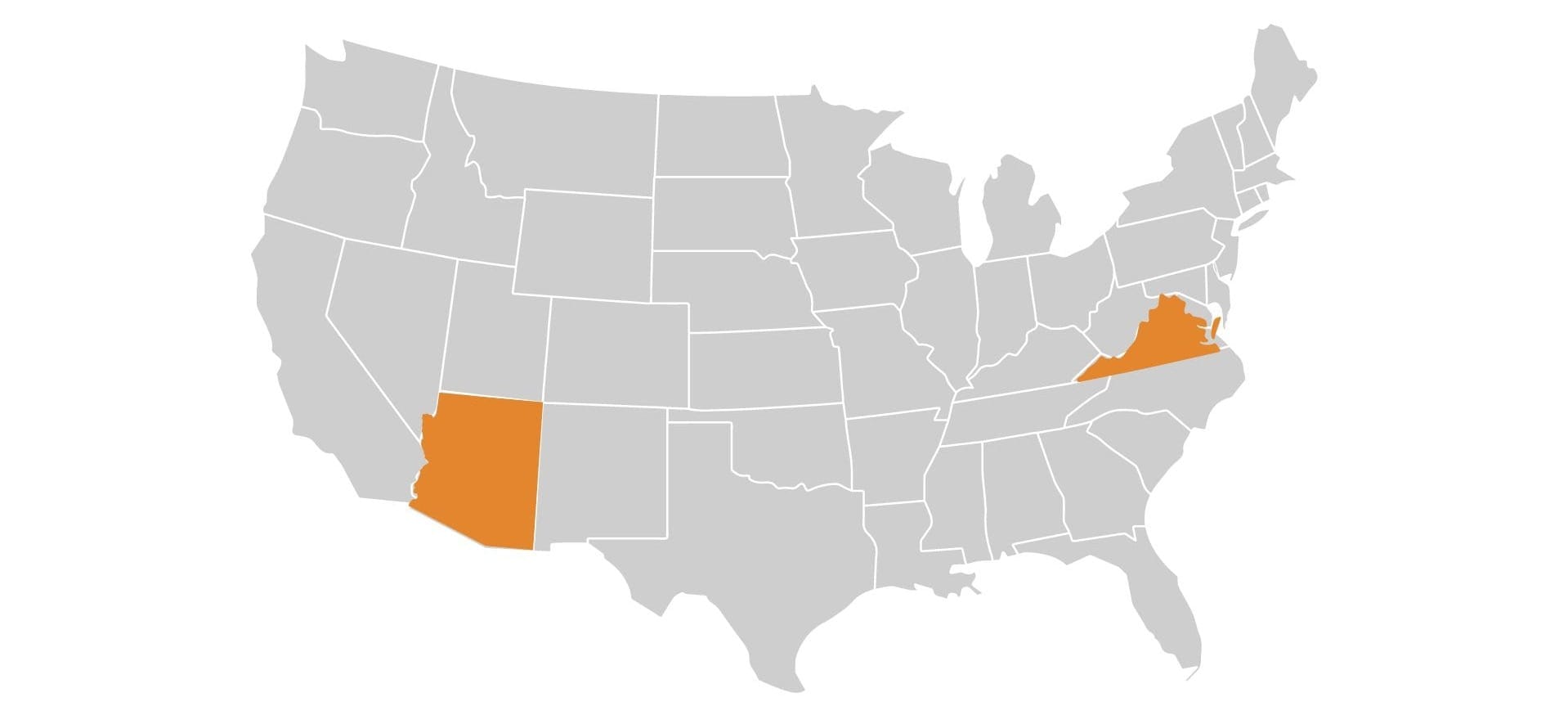
Arizona: "Republicans are taking aim at Arizona’s election guidelines in a new federal lawsuit challenging state policies on county vote canvassing and voter intimidation — the latest attempt from conservatives to unravel aspects of Arizona’s election procedure." Democracy Docket, July 10, 2024.
Voters are also bidding farewell to Maricopa County Recorder Stephen Richer, a Republican who doggedly countered election fraud claims amid intense harassment and lost his primary bid in late July.
Virginia: Speaking of frivolous inquiries, a July recount in the Virginia GOP primary revealed nominal issues: “When we took the original recount certification sheet, we put down a couple of wrong numbers. One was 36 and should have been 37, and one was for early voting where we put down 283 and 128, and they were both off by one vote,” said Jason Corbin, the general registrar in Mecklenburg County. The total number of votes cast in his area remained accurate. Now two of the contenders are questioning how expenses were billed.
It really is astonishing how a single election fraud narrative can give birth to all this and waste so much time, money and goodwill.
Volunteer appreciation 🎉
Anu Agrawal, a former MCI colleague, is helping Truth in Common in so many ways – with a platform assessment, email marketing, even lining up some pro bono design work. And raising smart kids who are now contributing as well. Thank you, Anu!
Follow us on Instagram @truth_incommon
LinkedIn | Threads: @dtroust | Twitter
Our mailing address is P.O. Box 21456, Washington, DC 20009
Copyright (c) 2024 Truth in Common. All rights reserved.

